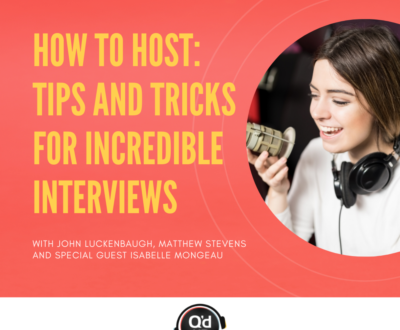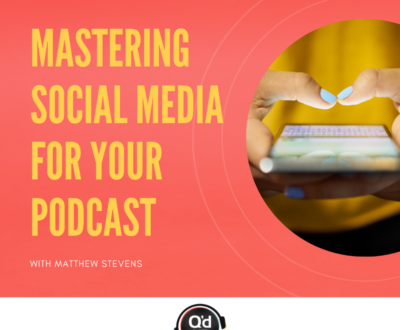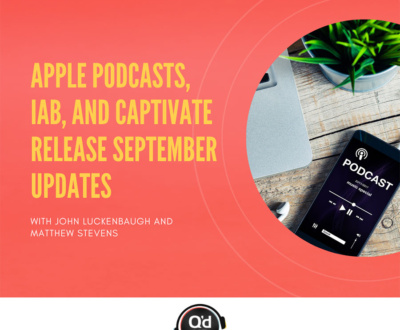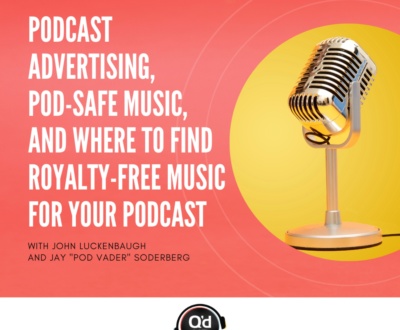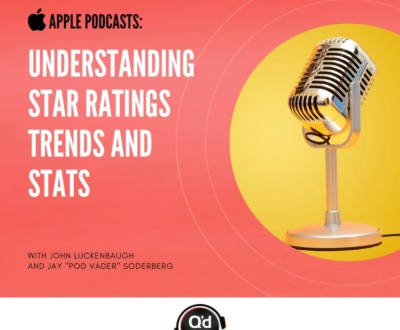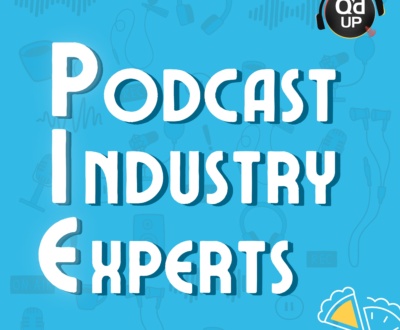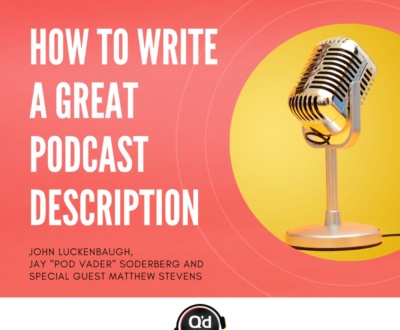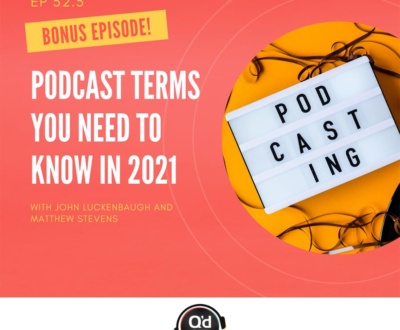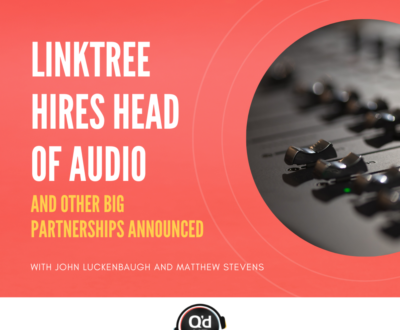Platform Agnosticism: The Free Way To Get More Listeners
- January 26, 2022
- Q'd Up Podcast
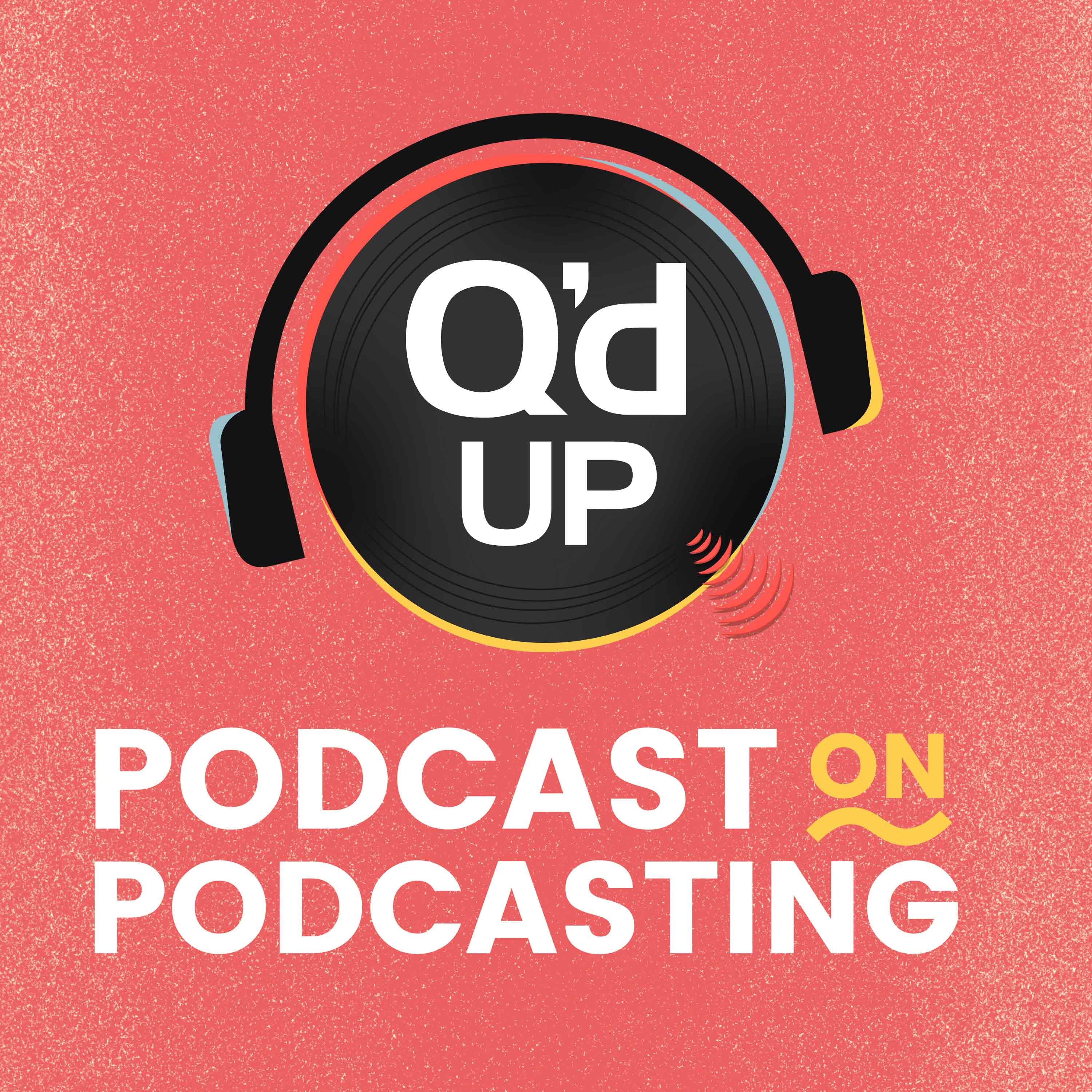
“Subscribe wherever you get your podcasts from” — It’s a great line isn’t it? But is your podcast actually everywhere people can find it? Far too many podcasters aren’t even on all the major platforms, leaving out a lot of potential listeners and making their podcast harder to find.
If you want more downloads, more subscribers, and a bigger and better audience listening to your podcast, you’ll want to be what we like to call “platform agnostic.” Listen to this episode of the Q’d Up Podcast on Podcasting as we share the stats and facts behind podcast distribution.
Follow Q’d Up:
Links:
The Verge – Spotify shuts down its namesake podcast studio
The Verge – Spotify will let its podcast hosts include full songs in their shows
The Verge – Joe Rogan, confined to Spotify, is losing influence
Listen to the Q’d Up Podcast on Podcasting:
Episode transcript:
“Subscribe wherever you get your podcasts from”
It’s a great line, isn’t it? But is it actually true for your podcast? A growing number of podcasts aren’t even on all the major platforms and as a result, they’re likely missing out on quite a few potential listeners.
As any experienced podcaster can attest, discoverability can be a serious problem. With so many podcasts currently on the market, it can be incredibly difficult to get your podcast noticed at all, much less be able to build a sizable audience.
But if you’re not doing even the minimum to make it easier for people to find your podcast, you’re not helping your cause.
If you want more downloads, more subscribers, and a bigger, better audience; keep listening to this episode of the Q’d Up Podcast on Podcasting.
While Spotify and Apple remain the biggest dogs in podcasting, there are a ton of smaller apps that millions of people use instead. There’s Google Podcasts, Amazon Music, GoodPods, PlayerFM, PocketCasts, Stitcher, and so many more.
Here at Q’d Up, we’ve found that certain countries and user demographics will have app preferences as well. For instance, this very podcast gets most of its listeners through GAANA — one of India’s top podcast platforms. You probably wouldn’t have thought that would be our highest-performing platform but if we weren’t on it, we’d be missing out on about 15% of our listener base.
For me personally, I use PocketCasts primarily and if you haven’t submitted your podcast there, I’m far less likely to listen. And believe me, I’m not alone.
Look no further than television and streaming services for how this plays out. We’ve all seen a show that looks interesting but was either on a cable channel or streaming service we didn’t have. Instead of spending the time to sign up to be able to see it, we put it on the back burner and in reality, never get around to watching. As a consumer, it’s not that big of a deal but as a creator, those are precious ears and eyes you could use on your show.
For all the questions we get from podcasters wondering how they can quickly get more listeners, it’s shocking how few are on apps beyond Spotify and Apple. It takes just minutes to set up each of these apps but it can equate to a significant rise in your downloads.
Spotify says they’re the top dog amongst weekly podcast listeners, claiming 24%, which bests 21% for Apple Podcasts and 18% for YouTube. But the real takeaway here is that there’s still 37% spread out over the other apps, which is significantly more than any single app can claim they have. If it only takes a few minutes to get distributed on these smaller apps but they equate to more listeners than Spotify or Apple, you’d be foolish to ignore them.
You simply won’t find a better bang-for-the-buck strategy when it comes to time vs. results.
As podcasting continues its boom, major companies are doing everything they can to steal market share away from competitors. For several of the biggest podcast apps out there, that’s meant paying a lot of money for the rights to large shows and in deals with creators.
We’ve seen this done the most by Spotify, which has dropped an insane amount of money to acquire big shows and bring in big names. Yet, that exclusivity hasn’t necessarily worked out for Spotify or for its creators.
According to The Verge’s Ashley Carman, Joe Rogan has seen a serious drop in his influence after going exclusive with Spotify, likely seeing a large chunk of listeners leave as well. His guests are getting a significantly smaller bump after appearing on the show and even Rogan’s YouTube channel isn’t getting the love it did previously. While Spotify has said Rogan’s show has “performed above expectations,” it’s worth taking such praise with a grain of salt here.
At the time, Spotify lauded its purchase of Gimlet Media for $230 million in 2019 as a “best-in-class podcast studio” and “premier producer.” However, recent data showed a 7% drop in consumption and Ashley Carman once again did a brilliant piece detailing the issues behind the scenes at Gimlet. The same goes for Spotify’s own in-house studio, which they recently shut down.
There are likely a lot of reasons for the lackluster results in these instances but the end result is still clear. If Spotify themselves are struggling with exclusivity on their own platform, your podcast isn’t likely to thrive as an exclusive either.
But that means spending the time to distribute your podcast as far and wide as possible. While some hosting services aren’t making distribution as easy or intuitive as it should be, lots of podcasters aren’t doing their part either.
According to Podcast Index’s Dave Jones, roughly 700,000 of the 1.6 million podcasts hosted on Anchor aren’t submitted to Apple. Buzzsprout also reports that 40% of users haven’t submitted to Apple either. And let’s be real here . . . if they aren’t on both Spotify and Apple already, they almost assuredly aren’t on the rest of the apps that make up 37% of weekly listeners. That’s a lot of ears to ignore.
Now, it isn’t just about the number of downloads. Being exclusive makes marketing even harder. I’ve talked to a number of influencers behind podcast recommendation websites and newsletters, and many of them have mentioned not having as much interest in the platform exclusives they get pitched.
For one, they might not like using that platform, making them less likely to even look at your podcast in the first place. Even if they do review it, a poor experience with an app could end up leaving a bad taste in their mouth, reflecting poorly on your podcast.
Secondly, they want to recommend podcasts that more people can listen to. These influencers are in the same situation as you and they need to be as open as possible to attract more users themselves. If you’re exclusive, it means they’re automatically cutting off some of their audience, which might mean fewer returning next time.
For those podcasters monetizing their shows, being exclusive likely means fewer listeners, which means fewer dollars. While it’s great Joe Rogan got millions in his deal with Spotify, making the potential decrease in audience a little more palatable, I doubt you’re in the same position. Fewer listeners for you means less in ad revenue, less in affiliate sales, less in premium subscriptions and Patreon. For niche shows, it could mean a serious reduction in your primary listener demographic, which is the reason you can charge a higher CPM in the first place.
For most established podcasts, the few benefits of being exclusive on a platform don’t outweigh the loss of audience. For new podcasts, you’re already scrounging for every listener you can get so the last thing you want to do is cut off 75% of your potential from the start.
That’s why we here at Q’d Up Audio believe in being “platform agnostic” until there’s a serious reason not to be. Be on every app you possibly can and focus your time on the ones giving you the most listeners. But until you’re actually everywhere, you’ll never know which platforms are best for you and for your podcast.
Now get out there, create something amazing, and have fun with the whole process. Oh, and don’t forget to subscribe to the Q’d Up Podcast on Podcasting wherever you get your podcasts from — seriously, wherever you get your podcasts from.
Request a free quote
We offer high-quality production, distribution, and marketing for podcasts and audiobooks. Contact us today for a free, no obligation quote

